Things to Know Before Using PEP (Post-Exposure Prophylaxis) to Prevent HIV
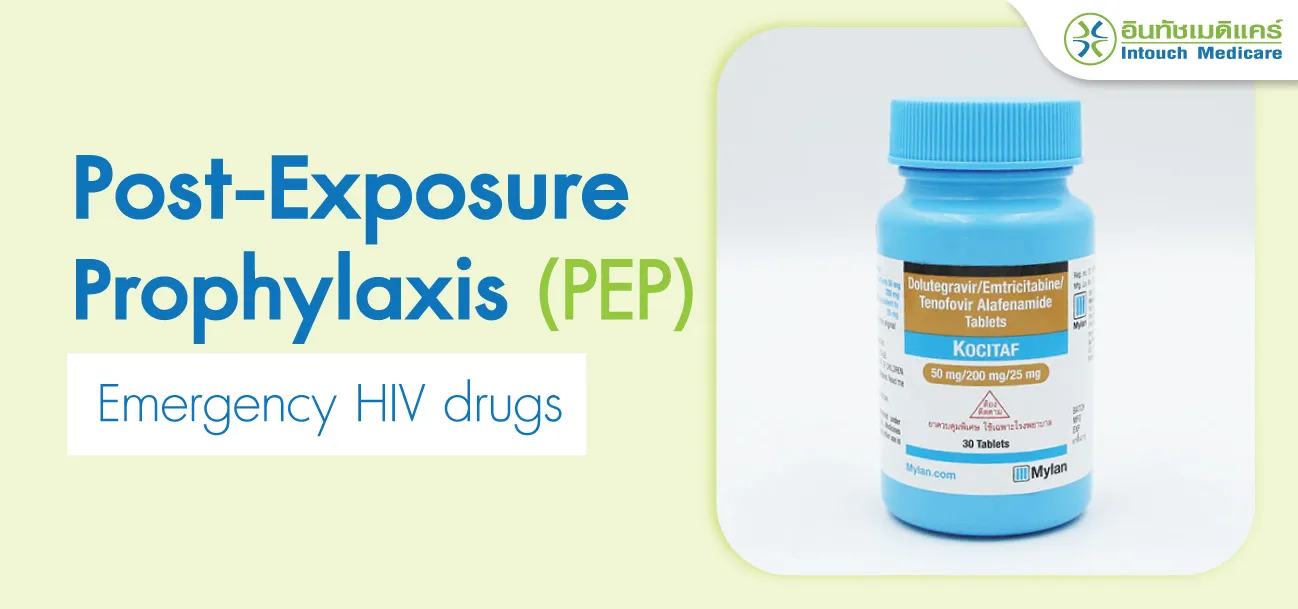
PEP (Post-Exposure Prophylaxis) is emergency HIV prevention medication used to prevent HIV infection after exposure to the virus, typically within 72 hours. PEP involves a regimen of medication, guidelines for discontinuation, and effectiveness in preventing HIV transmission. It is an emergency HIV prevention medication that many people may not be familiar with.
PEP (Post-Exposure Prophylaxis) is a medication that must be prescribed and dispensed by healthcare professionals and facilities, it is not available for purchase over the counter at general pharmacies.![]()
Therefore, before receiving this type of antiviral medication, a thorough medical history and detailed examination by a physician are necessary. Additionally, proper guidance on medication administration is essential. Let's explore how to take the medication, potential side effects of PEP, and the extent to which it may pose risks to the body. Intouch Medicare Clinic has the answers for you.
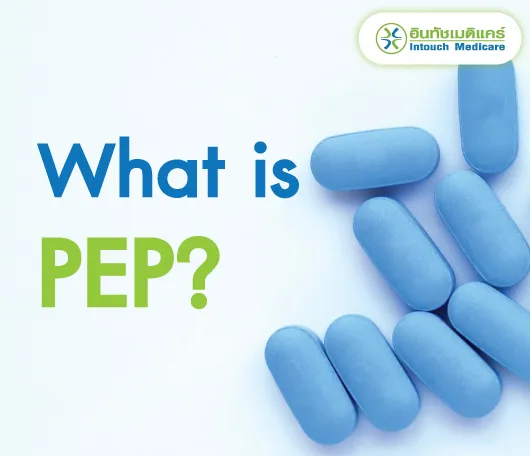
What is PEP?
PEP (Post-Exposure Prophylaxis) is emergency HIV prevention medication. PEP, short for Post-Exposure Prophylaxis, is a medication used to prevent HIV infection after potential exposure to the virus. It should be taken within 72 hours of exposure and continued for a duration of 30 days.
Exposure to HIV is considered a medical emergency as the virus can rapidly replicate within 24-36 hours. Therefore, receiving medication promptly after a risky exposure is crucial, ideally within 72 hours.![]()
The recommended PEP regimen typically includes a combination of three medications in one pill, which may consist of Tenofovir Alafenamide (TAF) 25 mg, Emtricitabine (FTC) 200 mg, and Dolutegravir (DTG) 50 mg. Additionally, there are other PEP medication regimens available, which healthcare providers may adjust based on individual patient circumstances.
How well does pep prevent HIV infection?
PEP medication has been confirmed to offer at least 80% effectiveness in preventing HIV transmission. However, since PEP is an emergency HIV prevention medication used after potential exposure to the virus, its efficacy depends on various factors, Characteristics and duration of exposure The amount of infection in an infected person, if there is more infection, the effectiveness will be less, etc.
"You should take medicine |
Risky behaviors that should be taken
1. Engaging in sexual intercourse without using condoms
whether through vaginal or anal penetration, especially without any protective equipment, poses a risk. It includes all sexual positions on the bed.
If you don't prevent this, you are at high risk of contracting HIV.![]()
2. Having oral sex
Oral sex, also known as use mouth, is performed by couples. whether oral use on penis or vagina. PEP administration is determined on a case-by-case basis if there are other elements that increase the risk.

3.condom breaks
Use a condom and the condom breaks, falls off, leaks, tears. While having sex, whether it's a man's condom. Condoms for women or Finger condoms are very popular in female couples. Tongue condoms
In this case, you should seek medical attention within 72 hours. Don't hesitate, because getting PEP early will have high protection efficiency.![]()
4. Touching blood or was pricked by a needle.
Accidental blood contact, such as pricked by a needle or shared with another person to inject drugs. The needle was Hexagonal Pile, the needle was pounded, there was visible blood on the needle. This includes having bleeding wounds on the genitals before going for unprotected sex.5. Multiple sex partners
Changing sexual partners frequently, having one-night stand relationships or having sex with sex workers without protection, and receiving secretions from people suspected of having HIV.
6. Share sex toys
Sharing sex toys involves inserting a sex toy into the other person's penis and then inserting it into their own penis without changing the condom.
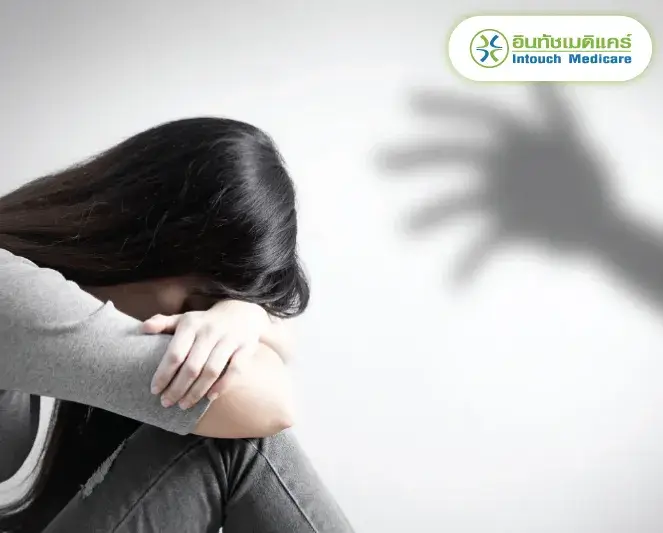
7. Being raped or sexually assaulted
It is a risk of unintentional exposure and exposure to secretions, saliva, wounds from oral sex. Genitals and anus
The following cases are at higher risk: male-to-male rape, rape that occurs in areas with a high prevalence rate, rape by multiple people, anal rape, and rape with bleeding or genital lesions for both the perpetrator and the victim. ![]()
8. Receiving blood or secretions
Receiving blood or secretions splashed into the eyes. into the mouth. various mucous membranes of the body or contact through the skin with cuts or cracks.
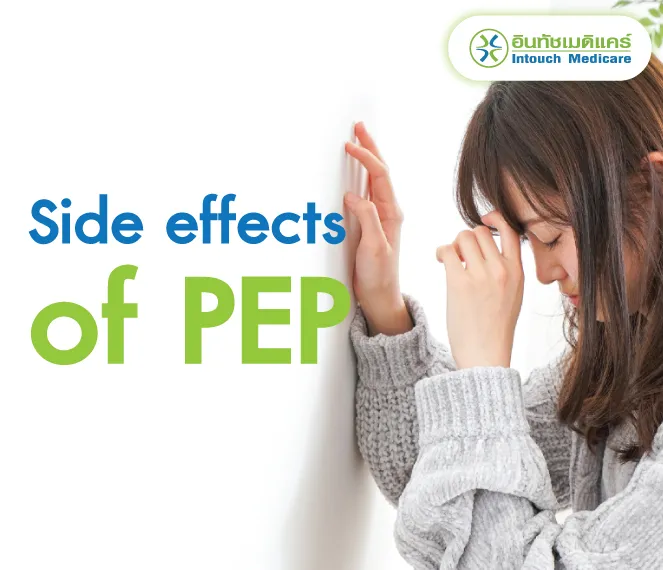
Is PEP dangerous? What side effects are there?
PEP or emergency HIV prevention medication is very safe. If the client takes the medicine correctly and is under the supervision of a doctor. The side effects of the new PEP are no longer as severe as those of the past. Common side effects include:- retch
- tired
- Dizziness
- Diarrhea
Side effects are usually only at the beginning of taking the medication and will gradually improve on their own, but if the symptoms are very severe, you can inform your supervising doctor for further treatment and examination.
footnote: Take the medicine for only 30 days, so you don't have to worry about long-term side effects.

What should you do before taking PEP?
Things to know before taking PEP Emergency AIDS Medication Patients must consult a doctor to ask about their history, medical conditions, and other information, and take an HIV blood test for the HIV virus, kidney and liver values before taking all medications. Screening for other sexually transmitted diseases such as hepatitis B and hepatitis C, syphilis, gonorrhea is recommended for treatment.
How do you take Pep pills? How long do you take them?
Start taking 1 tablet as soon as possible after exposure (1-2 hours), no later than 72 hours, and continue taking 1 tablet per day at the same time for 30 days or 4 weeks.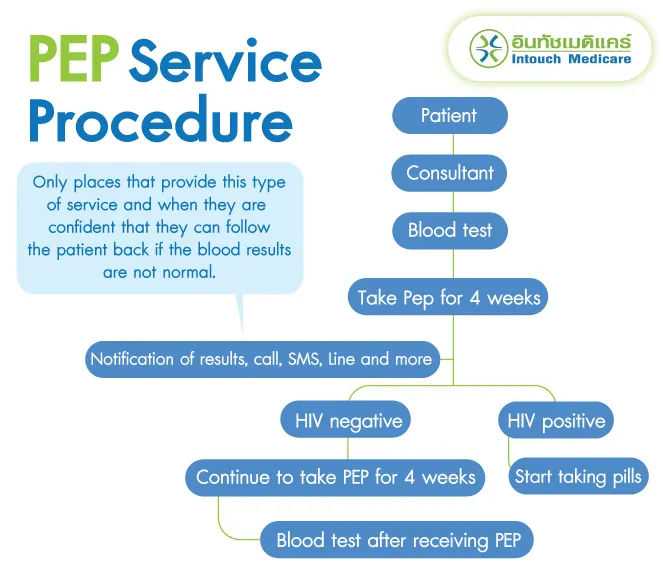
What should I do while taking PEP?
During PEP, patients should refrain from donating blood and wear condoms during sexual intercourse. If risks arise during taking the drug, continue taking the medication first and inform the doctor. To adjust to increase the duration of eating longer in some cases.
Patients are advised to watch for symptoms of early infection, such as low-grade fever, body aches, headache, rash, fatigue, weight loss, etc., as the early infection may remain undetectable. If you have symptoms, you must always inform your doctor to plan your follow-up accordingly for each individual.
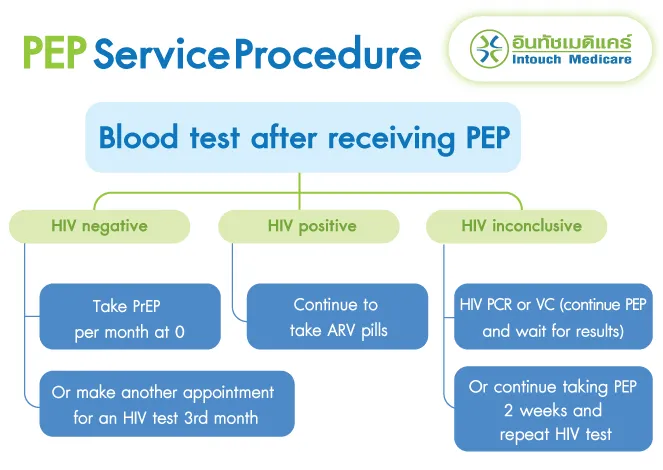
After 30 days of PEP, what should you do?
The doctor will schedule a follow-up test 1 and 3 months after taking PEP to test for HIV to ensure that there is no infection and monitor for side effects caused by taking the medication.
Appointments after taking PEP are very important. Patients should follow up regularly and assess their risk to: If there is still a tendency to engage in risky behaviors, the doctor will recommend that the patient continue taking PrEP to better prevent infection.

If I am pregnant or breastfeeding, can I take Pep?
Pregnant women can take Pep to prevent infection, and the drug does not harm the fetus, but must be under the supervision of a specialist doctor.
If I have been exposed for more than 72 hours, can I take PEP?
However, the patient must first consult with the supervising physician to plan the course of taking the medication together, and the doctor will consider taking it on a case-by-case basis.
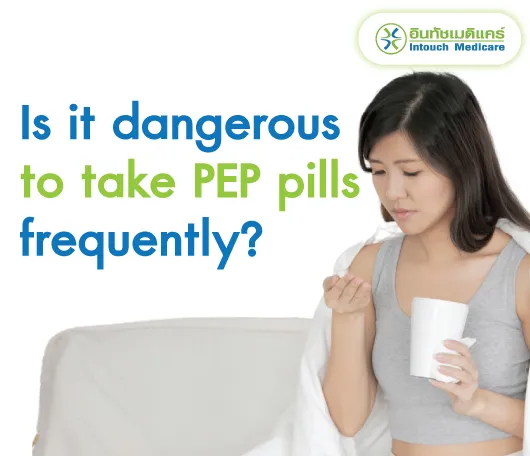
Is it dangerous to take Pep frequently?
Taking Pep pills frequently is not dangerous, but it shows a tendency that the client is at high risk. Therefore, PrEP is recommended to prevent it better.
Can I stop taking pep before 30 days?
It can be stopped. If you are confident that your partner is not HIV positive and there is no additional risk, both the client and the sexual partner must consult with your doctor before stopping the medication every time and it is safer to take it for 30 days.

Where can I get Pep?
- PEP is available for prescription only by a licensed medical practitioner. Get PEP at emergency departments, hospitals, and clinics that offer PEP post-exposure services as soon as possible.
Pep is an emergency HIV prevention drug. After exposure or after risk of infection
Those who have recently been exposed must receive the drug within 72 hours and must take the drug continuously for 30 days.![]()
Effectively prevents disease up to 80%. If you want to receive PEP medicine, you can contact the hospital's emergency department. It is recommended that you contact for medication as soon as possible for maximum effectiveness in protecting against the HIV virus.
Reference
Centers for Disease C, Prevention.Updated guidelines for antiretroviral postexposure prophylaxis after sexual, injection drug use, or other nonoccupational exposure to HIV—United States, 2016
Division of AIDS and Sexually Transmitted Diseases Department of Disease Control Ministry of Public Health.Diagnostic Guidelines Treatment and prevention HIV Infection Thailand Year 2021/2022
Interesting Articles
Composer : NATTAWADEE SRIBORISUT, MD
Last edited : 19/03/2024